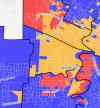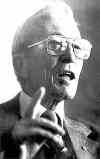Activists working hard to engage aboriginals, get out the vote
Advertisement
Read this article for free:
or
Already have an account? Log in here »
To continue reading, please subscribe:
Monthly Digital Subscription
$0 for the first 4 weeks*
- Enjoy unlimited reading on winnipegfreepress.com
- Read the E-Edition, our digital replica newspaper
- Access News Break, our award-winning app
- Play interactive puzzles
*No charge for 4 weeks then price increases to the regular rate of $19.00 plus GST every four weeks. Offer available to new and qualified returning subscribers only. Cancel any time.
Monthly Digital Subscription
$4.75/week*
- Enjoy unlimited reading on winnipegfreepress.com
- Read the E-Edition, our digital replica newspaper
- Access News Break, our award-winning app
- Play interactive puzzles
*Billed as $19 plus GST every four weeks. Cancel any time.
To continue reading, please subscribe:
Add Free Press access to your Brandon Sun subscription for only an additional
$1 for the first 4 weeks*
*Your next subscription payment will increase by $1.00 and you will be charged $16.99 plus GST for four weeks. After four weeks, your payment will increase to $23.99 plus GST every four weeks.
Read unlimited articles for free today:
or
Already have an account? Log in here »
Hey there, time traveller!
This article was published 22/09/2015 (3733 days ago), so information in it may no longer be current.
“OUR citizens are getting organized, and they will be voting in this election.”
Those were the words of national Chief Perry Bellegarde, the leader of Canada’s largest aboriginal group, after last week’s debate. He said party leaders failed to offer plans to close the gap in the quality of life between aboriginals and other Canadians.
“The buzz is starting to happen, the educational awareness is starting to happen, the feeling of empowerment is starting to grow that we will really have an impact,” Assembly of First Nations Chief Bellegarde told the Free Press recently.

Traditionally, the percentage of indigenous people who vote has been lower than the Canadian average. Only 37.6 per cent of the eligible population on Manitoba’s indigenous reserves voted in the 2011 federal election. The average nationwide was 58.8 per cent.
This year, as aboriginal issues have become more publicized, voting is more urgent than ever, said Sylvia Boudreau of Winnipeg’s Indigenous Rock the Vote.
Similar to the 2014 civic election, Indigenous Rock the Vote has been working for months to make the indigenous vote on par with the Canadian average.
Boudreau noted a lot of the policies that affect those in the aboriginal community are under the authority of the federal government, as opposed to municipal and provincial governments.
While the group remained non-partisan during last year’s civic election, she said this time around it appears the community wants change.
“Whether that comes from a Liberal, NDP or even Green, I don’t know for sure, but I think they have had enough with what has gone on,” she said, citing examples with the environment.
So far, the group has had one organizational meeting in which 20 people attended a brainstorming session about how to get more indigenous people to the polls. They hope to hold a rally before the Oct. 19 vote.
Wayne Mason, a concerned citizen who attended the meeting and has spent his life working as an educational administrator in the aboriginal community, argues voting is the “most important key to their future.”
“A lot of people have been marginalized because of lack of attention from the government, but I think if we mobilize people, we can make a big difference in the federal election,” Mason said.
“We need to get our people to vote and help them understand we can make a difference. We may only be 15 to 20 per cent of the population, but that is a big number. We don’t use it to our advantage.”
A Statistics Canada survey in 2011 showed there were 133,165 aboriginal people in Manitoba aged 15 or older; roughly 15 per cent of Manitoba’s voting population in 2011.
The Assembly of First Nations has identified six ridings in Manitoba where aboriginal voters could make a significant difference: Dauphin-Swan River-Neepawa, Churchill-Keewatinook Aski, Winnipeg’s Elmwood-Transcona, Winnipeg Centre, Winnipeg North and Winnipeg South Centre. Those ridings have large aboriginal populations. Ridings such as Elmwood-Transcona and Winnipeg North were won by a slim margin in 2011.
One of the first steps the group has acknowledged is getting community members proper identification, which has become even more important with the changes to the Fair Elections Act.
Second, is making sure voters are registered ahead of time, which can ensure there are no issues when people head to the polls.
The group will put up voter-registration booths at events where aboriginals gather.
It will also find more creative ways to get the message across. For example, they are looking at distributing posters that advertise the new requirements or partnering with groups such as Citizens’ Bridge to help people get necessary identification.
The Facebook account, Winnipeg Indigenous Rock the Vote in the 42nd Federal Election, serves as an information hub for people to post information on debates, candidates and voter registration.
kristin.annable@freepress.mb.ca
History
Updated on Tuesday, September 22, 2015 8:25 AM CDT: Adds video, adds missing text, adds photo
Updated on Thursday, September 24, 2015 9:33 AM CDT: Removes mention of First Nations salary disclosures attributed to Boudreau.














